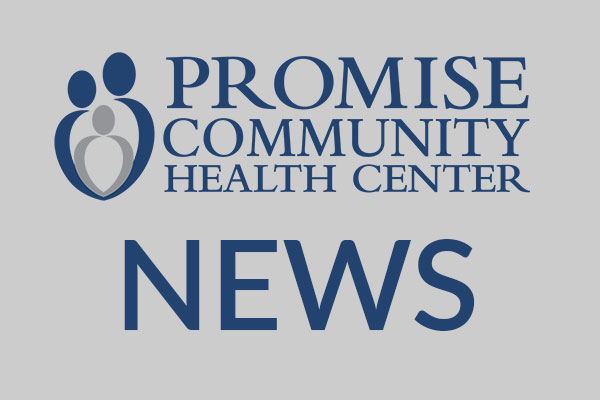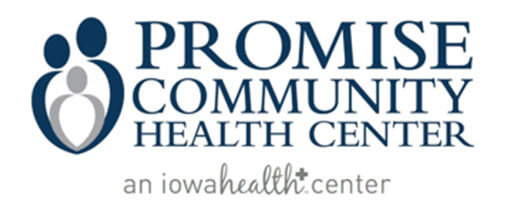
A group of five nursing students from Northwestern College in Orange City studied how Promise Community Health Center in Sioux Center could further enhance its health education methods.
The students – Bethany Los, Blair Montgomery, Katie Bosch, Allison Daugherty and Kathryn Elliot – presented the findings of their senior research project Tuesday at Promise.
For the semester-long study, the group answered the following clinical question:
“How does the education provided to patients at Promise Community Health Center compare to current evidence-based best practice methods regarding health education?”
“We found that what you are currently doing is meeting evidence-based practices, but all the research that we did just really emphasizes the importance that you can never have too much patient education,” Bosch said, noting that is especially important for the population served at Promise – with patients often speaking other languages and tending to be lower income and having lower levels of formal education.
The student group offered the following recommendations for Promise:
Develop a survey to distribute at patient appointments to evaluate the effectiveness of current educational methods for the populations being served.
Create an educational checklist, based on the results of the survey, that providers and nurses would use in their care with patients to ensure that they are being intentional about patient education.
Hire an additional full-time nurse health coach to enhance health education with patients.
During the project, the students discovered on Promise’s website that the health center already is seeking to increase its nurse health coach support. They were pleased to see that because it fit into their research, which emphasized the importance of that resource.
“That availability definitely proves to be very effective,” Bosch said.
The students also said the way health education is delivered is important – noting that patient understanding greatly increases with simplified language.
“With having different cultures served here, different health literacies, we hope the education still is being spread properly and everyone is recalling exactly,” Elliot said. “Whether they speak a different language or they read at a different level, we would hope education is being met so that everytime you’re seeing a patient, they can say, ‘Yes, I totally understand what you’re saying. This is how I have to take care of myself. This is how the doctor told me to take my medication.’”
The students also said testing recall of education is important. That fits with Promise’s practice of using the “Teach Back” method. The method is a way of checking patients’ understanding about what has been explained by asking them to state back in their own words what they need to know or what they need to do. That can range from a front desk receptionist asking a patient to respond with what they should bring to an appointment to a physician asking a patient to share how they should take a medication.
Overall, the students emphasized that patient health education shouldn’t be underestimated.
“Health education is an essential part of preventing disease and increasing overall health,” Los said.
Emily Tuschen, clinic manager for Promise, said the presentation was beneficial.
“I thoroughly enjoyed listening to their presentation and how they connected the evidence-based research to what is feasible in the day to day of a busy clinic,” she said. “The tools and templates that they handed back to Promise for future use are very applicable to our current processes. I have all intentions of implementing their proposals and following their recommended timeline to fine-tune our current policy regarding patient education.”
Tuschen added that working with the Northwestern seniors over the past few months has been “very enjoyable.”
“It was fun to see these future nurses finishing their college experience and getting ready to transition into the career world,” she said. “They were a very professional group of girls – great communicators and easy to work with.”

